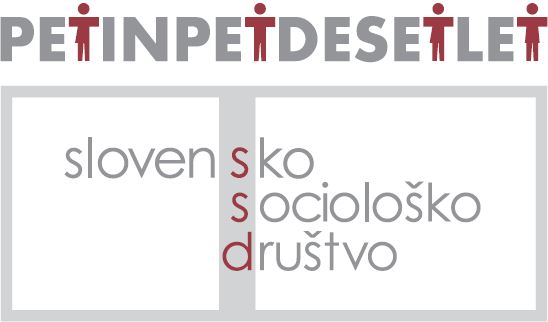Social Science Forum 85 (XXXIII)
Symbols and symbolic meanings in constructions of nations and national identity
Ljiljana Šarić, Mark Luccarelli
The Post-Communist Renegotiation of Slovenian National Symbols
Veronika Bajt
ABSTRACT: This article explores how Slovenian collective memory and national identity have been renegotiated by post-communist political elites through the adoption of new state symbols in the light of changes connected to the collapse of communist ideology, the breakup of Yugoslavia, and the establishment of an independent Slovenian state. Concentrating on the ways state imagery is legitimated as representing the nation, the analysis discusses the post-1991 reorganization of Slovenian national symbols. I argue that, by analysing the adoption of a new state flag, coat of arms, and national anthem, the official national identity re-conceptualization shows how Slovenian national memory became redefined as the new state memory, which resulted in nationalizing state practices and policies.
KEY WORDS: Collective memory, flag, national symbols, Slovenia, Yugoslavia
>> Download
»Halfway Tradition«: Transition, Nation, Sex, and Death in the Work of Marina Abramović and Mladen Miljanović
Uroš Čvoro
ABSTRACT: This article examines how the artists Marina Abramović and Mladen Miljanović apprehend the terms Balkan and Europe as frameworks for understanding the post-communist transition in the countries of the former Yugoslavia. Abramović’s representations of pagan sex rituals in Balkan Erotic Epic (2005) and tombstone engravings in Miljanović’s The Garden of Earthly Delights (2013) capture what I describe as “halfway traditions”: cultural practices that simultaneously problematize the normative teleology of the Balkans moving away from primitivism and toward the civilization of Europe, and act as parodies of the nationalist reinvention of tradition. By highlighting “halfway tradition” as the symbol of the post-communist transitional state and a disruptive by-product of transition, Abramović and Miljanović critique ethnonationalist politics of death and sex, and articulate an “in-between” temporality that disrupts the teleology of transition.
KEY WORDS: Abramović, Miljanović, art, tradition, transition, nationalism
>> Download
»Cyrillic does not Kill«: Symbols, Identity, and Memory in Croatian Public Discourse
Ljiljana Šarić, Tatjana Radanović Felberg
ABSTRACT: This article addresses identity construction through social symbolic meanings conveyed in discussions about scripts, primarily Cyrillic, in Croatian public discourse. We focus on discussions in various Croatian online sources from 2013 to 2015 centred on the topic of “Cyrillic as a symbol” and serving as an umbrella for discursive negotiations of (a) identity and belonging, (b) collective memory of the recent past, and (c) minority rights. The symbolic meanings of Cyrillic have been developed and utilized by politicians, professionals, various organizations, and ordinary people in various contexts and with various aims: from delegitimizing political actors and propagating hostility and reconciliation, to creating a “useful” past and consolidating collective identity.
KEY WORDS: Cyrillic, Latin, symbol, memory, Croatia
>> Preberite celotno besedilo
»Locked Up« in Nation States: Perceptions of the Relations Between the State and National Community within Political and Social Discourse in Lithuania
Eglė Kesylytė-Alliks
ABSTRACT: This article examines how the idea of the nation-state is articulated in political and social discourse. In particular, it explores how the national community and the state are positioned vis-a`-vis each other in discourse surrounding national flags. I locate my analysis in Lithuania after the dissolution of the USSR. I explore how the interaction between the state and the nation is discursively represented among politicians and ordinary citizens when they discuss Lithuanian national flag(s). Intriguingly, whereas semi-public discourse could generally be described as “locked up” in thinking in terms of the nation and state as interdependent entities, for political actors the intertwining of the nation and state was a less doxastic state of affairs.
KEY WORDS: national symbols, nationhood, statehood, Lithuania, discourse analysis
>> Download
Book Reviews
Ana Lorger, Renata Šribar
ABSTRACT: Michelle Perrot: Ženske ali Molčanja zgodovine. Vnanje Gorice: Kulturno-umetniško društvo Police Dubove, 2016. (Ana Lorger) Lilijana Burcar: Restavracija kapitalizma: repatriarhalizacija družbe. Ljubljana: Sophia, 2015. (Ana Lorger) Stanislava Chrobáková Repar: Agonija smisla: premišljevanja o civilizaciji bogatih barbarov, propadu (med)kulturnih izbir, feminističnem oplajanju – in vztrajanju. Ljubljana: KUD Apokalipsa, 2015. (Renata Šribar)
